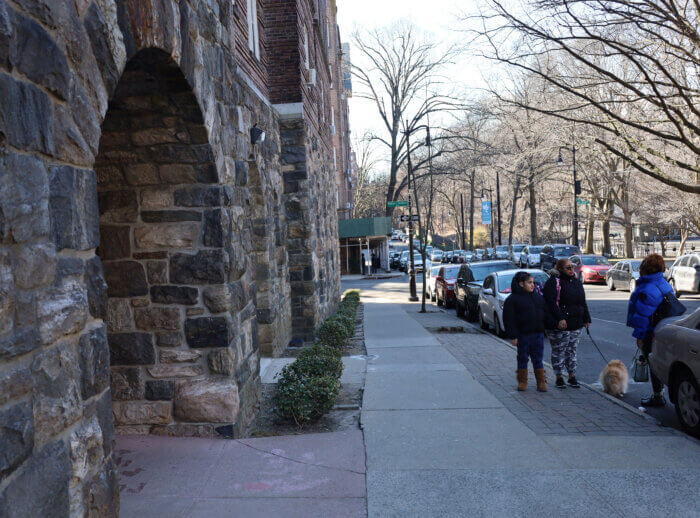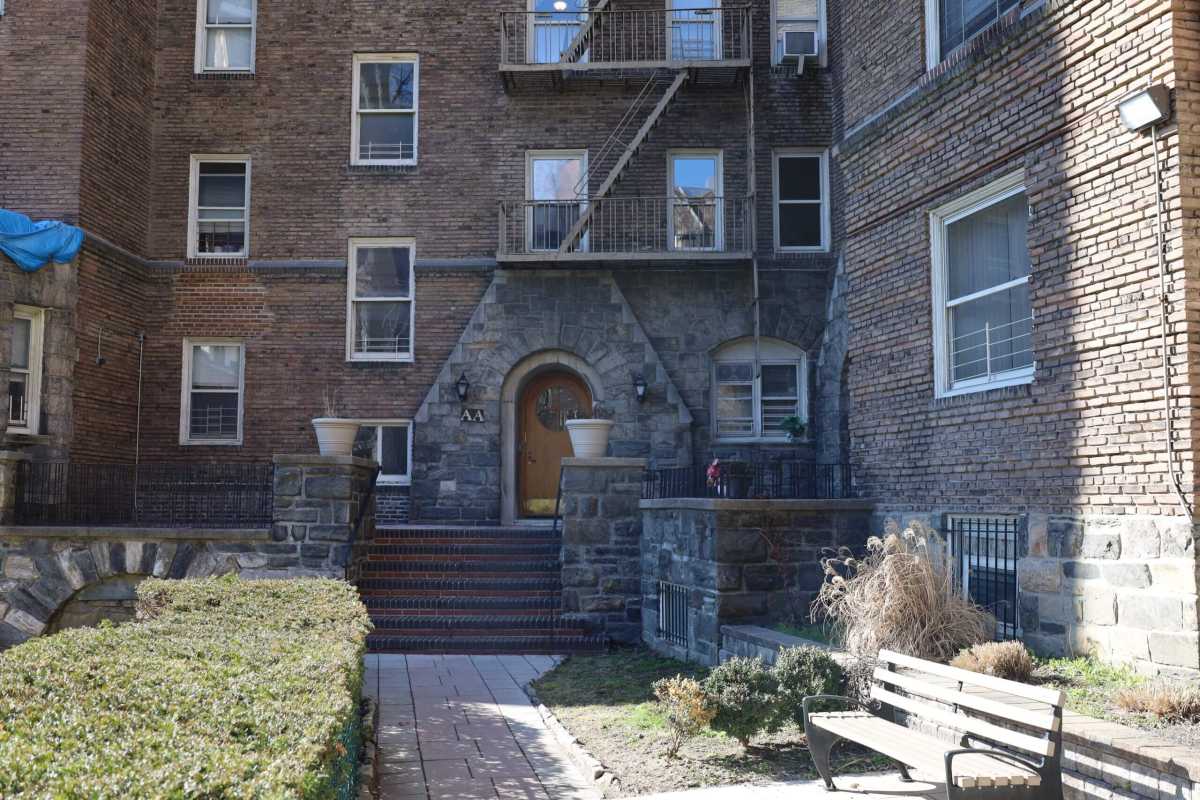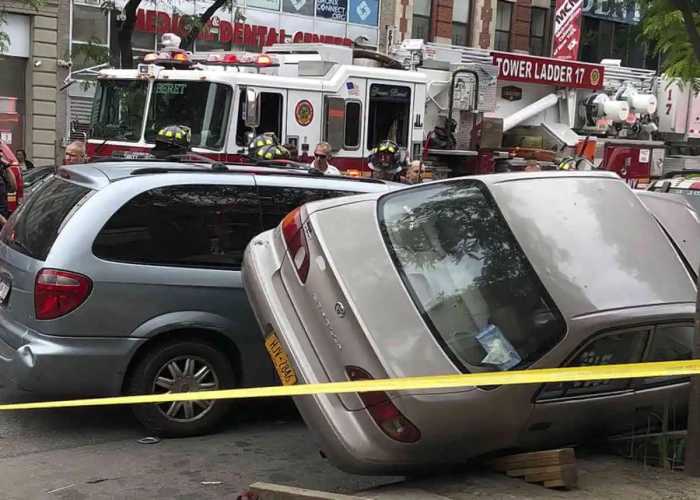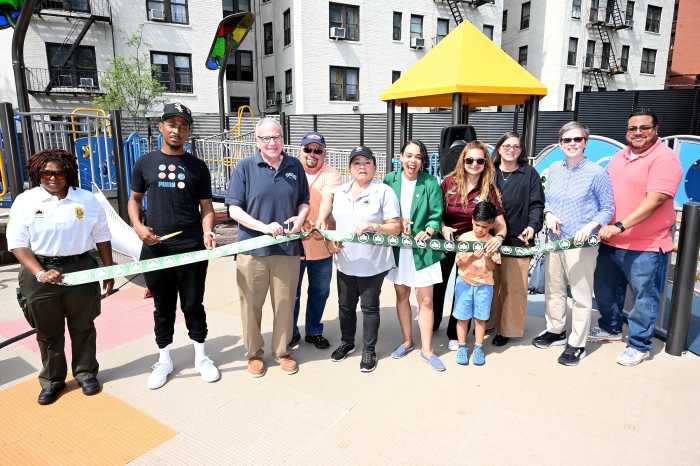Without intervention, roughly 827 residents in the nation’s oldest affordable housing co-op, Van Cortlandt Village’s Amalgamated Houses, could face gas service shutoffs by July 1. A newly-formed board of cooperators say that preventing the looming gas shutoffs is just one item in a laundry list of necessary repairs believed to cost around $150 million for the near century-old co-op.
The board of cooperators, known as Amalgamated Cooperators United (ACU), cite a longstanding financial crisis and looming default on its insurance coverage if it fails to make a $400,000 down payment on June 1. Amalgamated’s monthly operating reserves in a given month are less than $200,000, according to Amalgamated cooperator and member of the co-op’s new board, Robert Scott
During a Feb. 15 board of directors meeting, the board painted a financial picture that included cash and reserve funds totaling just $176,076. Amalgamated also owes roughly $1.5 million in payments to past vendors.
“If you have less than $200,000 to play with in any given month, every serious contingency becomes a life-threatening emergency,” said Robert Scott, an Amalgamated cooperator and member of ACU. “And that’s one of the reasons we’re facing this double whammy. We couldn’t fix the problems that were identified in the inspection, and we don’t know where we can find the $400,000, among the other issues, to keep our residents taken care of.”
The Amalgamated Houses are 11 apartment houses, scattered over six blocks just south of Van Cortlandt Park. The buildings came into existence as part of a 1926 Housing Law, offering a 20-year tax exemption and low-cost building loans to developers who kept profits below 6%
Many of the tenants, board members said, are moderate-to-low income and seniors. A bulk of the buildings in the portfolio were constructed before 1955.
Last December, Amalgamated’s contracted plumbing company assessed that “major work” needed to be done to repair the aging gas piping systems in the cooperatives by June 30, which carries a $6,500-$7,500 price tag per apartment, roughly $9.8 million in total.
Amalgamated Cooperators United is seeking a $7 million bridge loan for a new mortgage, help from the state’s Homes and Community Renewal (HCR) to acquire that mortgage to comply with local city laws and inspections, and $800,000 for appliances and cookware for families who may lose access to cooking gas.
Local Law 152 requires the periodic inspection of gas piping systems of all buildings at least once every four years. Scott says despite the law’s intentions to prevent gas explosions that happened in the East Village in 2015, it can hamstring some of the city’s oldest buildings and co-ops that are unlikely to pass inspections or pay for fixes.
“Our manager has been telling HCR for five years ever since this law passed that this was going to be a terrifying blow to almost all the buildings in our portfolio,” said Scott. “Most of these old buildings would not pass these inspections, and we don’t have the means to be able to recover from that.”
The newly-formed board is holding a meeting at 7:30 p.m. Monday at Vladeck Hall to rally tenants to spur relief from state leaders and to “address the financial crisis” they blame on neglect and misdirection by HCR.

HCR — the state agency which oversees Amalgamated Houses and approves their loan paperwork — has been accused by board members of failing to secure much-needed low-interest loans for the co-op in 2020 and 2021 that would have offset the costs to repair the gas lines and the need for long-term improvement in the face of future deterioration.
In 2017, the state agency provided a subsidy loan in the amount of $6.65 million — with $43.5 million in private financing from Amalgamated Apartments — to address immediate repairs and long-term capital needs on all 11 residential buildings.
While HCR told the Bronx Times last month that the subsidy was supposed to include repairs to the buildings’ fire escapes, new drainage systems, garage repair and restoration, asbestos and lead abatement and replacement of the boilers, board members disagree with the purpose of the subsidy.
Smith said that subsidy was only intended to fix Building 10, which the board had tried to sell due to its deteriorating and inhabitable state. Another financial strain, board members tell the Bronx Times, is a growing debt of $631,000 owed to them by sister site Park Reservoir Housing Corporation, which they allege HCR hasn’t allowed them to collect on.
The Bronx Times reached out to HCR for comment and is awaiting a response. In their statement to the Times last month, HCR said it was up to Amalgamated, which is privately-owned, to manage the building and provide solutions to these looming issues.
Amalgamated General Manager Charles Zsebedics alerted residents of the potential shutoffs via a Feb. 22 building memo, despite some affected tenants telling the Bronx Times they weren’t aware of these shutoffs until a March 9 story ran in this newspaper.
Zsebedics in 2000, pled guilty to third-degree grand larceny for participating in a criminal enterprise that included 29 others, in defrauding residents and cooperators of nearly $1.3 million in Queens.
Zsebedics was forced to pay a $34,000 fine and serve five years probation, although that sentence was reduced prior to being appointed as Amalgamated’s general manager in 2011.
In his memo to tenants, Zsebedics noted that the buildings also can’t transition its gas stoves to electric stoves in affected apartments because a standard electric stove would overwhelm the electrical capacity of the building’s near-century old apartments.
According to a study done by Amalgamated Housing, the cost of electrical upgrades to support use of an electric stove in the co-op would run $3,000 per apartment.
The Bronx Times reached out to Zsebedics for comment and is awaiting a response.





















